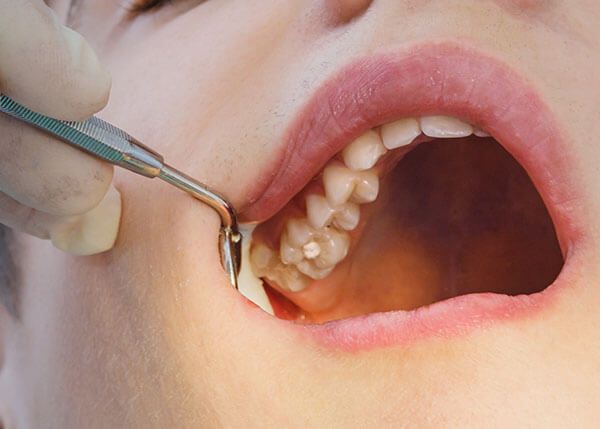Composite fillings offer the stability of traditional fillings, but with the added benefit of matching the natural look of your tooth.
Cavities used to be filled with a mixture of metals, including silver and mercury. It was perfectly normal to see dark grey areas in someone's mouth when they laughed.
But today, you can get your cavities filled with white composite fillings that blend in with your teeth. Composite fillings are made from resins that are matched to your tooth's color - so they become invisible when applied.
Composite fillings can also be used on front teeth as a quick and easy way to whiten / brighten your smile. Composite fillings also provide an excellent seal on the affected area, so that tooth decay can be prevented. The factors that go into our decision to use composite fillings include:
• The size of the area that needs to be filled
• The location of the affected area in the mouth (i.e., a tooth that is heavily relied on for chewing)
• Allergies the patient might have
• Whether it is necessary cosmetically to have a tooth-colored filling
To schedule an appointment or a consultation for more information on Composite Fillings, contact Bellefonte Family Dentistry today at 814-355-1587.
A favored procedure for minor dental corrections, bonding (also known as composite bonding) is a quick and affordable way to correct a variety of dental flaws?
Dental Bonding can help with issues such as:
- Cracks
- Discoloration
- Gaps
- Low Bite Pressure (caused by short or uneven teeth)
- Tooth Decay
If you have any of these dental issues you may be a good candidate for bonding.
How Does Bonding Work
After inspecting the tooth in question, your dentist will select a color for the composite resin (the material used in bonding) that most closely matches your tooth. He or she will then roughen the outer layer of your tooth, removing a minimal amount of tooth enamel, and apply a strong adhesive that will help the resin stick. Your dentist will then shape the resin to fill in any cracks or gaps or change the contours of your tooth. Afterwards, a dental laser is used to "bond" the material to your tooth. A local anesthetic is generally only required when tooth decay or nerve damage is involved.
How Long Does Bonding Take?
Dental bonding can be performed in a single visit, unless you're having several teeth bonded. The procedure usually takes between an hour and two. If you're having your teeth lengthened, it might take a few days for you to get accustomed to them.
How Long Does Bonding Last?
The composite resin used in bonding can last up to 10 years before it needs to be repaired or replaced.
How Much Does Dental Bonding Cost?
Dental Bonding typically costs between $175 and $600 per tooth, and the cost can vary depending on the extent of work required and the skill level of the dentist.
Is Bonding Covered By My Dental Insurance?
Most insurers will cover some or most of the cost of bonding, especially when its purpose is reconstructive rather than cosmetic.

